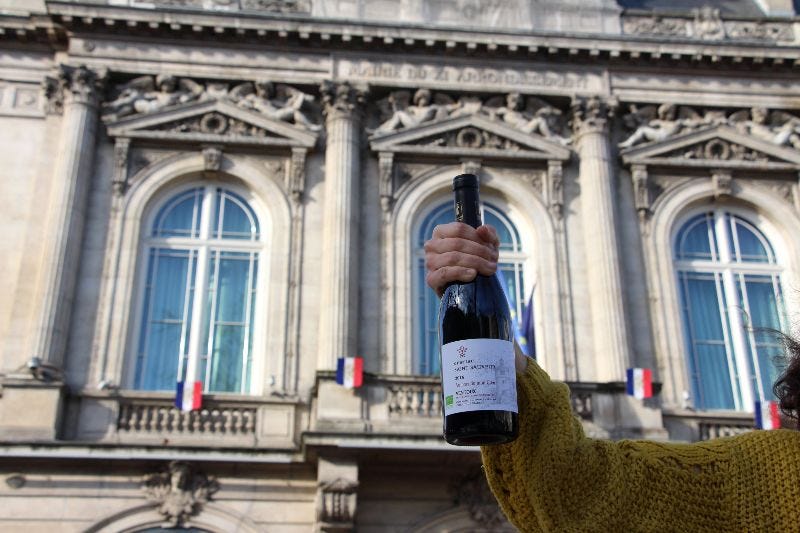Emily in France 🇫🇷 French Novels and Croissants

Storytelling is over; long live storytelling.
My sister has recently been sharing inspirational quotes with our family via email – one per day, every day, with a lovely, lively bit of commentary. Today, she sent us a great one by Isaac Newton (“If I have seen further, it is by standing on the shoulders of giants.”) that made me think about all the ways in which we build on the past, but also all the ways in which it can seem so impossible to go any further, when you're the latest in a long line of ingenuity.
There's a quote by Maurice Barrès (iffy, anti-Semitic human; awesome to quote) who said, at the end of the 19th century, "Raconter est devenu proprement impossible." - loosely: to tell a story has become impossible. He was writing specifically following the century of French novel-writing greats: Zola, Hugo, Stendhal, Flaubert, and perhaps chiefly among them, Balzac.
Balzac drank 40 cups of coffee and wrote for 16 hours a day. (I swear, I don't want to be Balzac, despite evidence to the contrary). Over the course of his short life (51 years – a result of all the coffee, maybe?) he wrote 91 finished works (not including the stuff he didn't finish or his plays... good grief, to be as productive as that man), which attempted to provide a panoramic view of life in France and French society at the time. Each book was dedicated to an image or archetype: the father, the daughter, the scorned husband, the country doctor... (that his women were pretty much always defined within the context of men is a very 19th-century issue I choose to overlook for the purposes of this newsletter, but I digress).
Balzac created, not just a series of stories, but a whole separate world that mirrored the world of the time. Characters who were in the foreground in one novel would walk through the background of another. He had a very weird system of cards illustrating who had met whom and when and in what context that he was constantly shuffling around his desk in an attempt to keep track of the intricacy of the alternate universe he had created.
Balzac died in 1850, and 50 years later, there had been innovation in the French novel, yes: You had the politically-driven epics of Hugo; you had the realist, immersive works of Zola. But thanks, in part, to Balzac's goal – I'd say realized – of writing all of society, it seemed, by the end of the century, that there were no stories left to tell: like the 17th century had been the century of the sweeping theatrical opus (Corneille, Molière); like 18th century had been the century of the philosophical essay (Descartes, Voltaire, Rousseau); the 19th century would be the century of the novel, and that book had been closed, at least if you believed Barrès.
And then, in 1910, an Alsatian Jew destined, like Balzac, to die at 51 after a bedridden lifetime so sickly his friends resorted to sending him paper flowers so as not to irritate his sinuses, wondered what it would be like to begin, not at the beginning of the story, as pretty much everyone ever before him had, but to begin almost at the end. To establish present stakes and, once the reader was made privy to them, to zoom back in time in an instant; to explore the very idea of how memory makes us who we are.
In 1910, Marcel Proust decided, not to tell a new story, per se, but to pioneer a new way of doing so. He decided to take a sensory memory, one so individual yet so universal that the madeleine de Proust has become, in French, shorthand for a nostalgic sort of dish that sends you careening into your childhood. In essence, a few short years after Barrès declared that storytelling had become impossible, Proust invented the flashback. And he did so by standing on the shoulders of giants.

What I'm Eating
Sain is one of my all-time favorite bakeries in Paris (and next week, I'll be showing it off in collaboration with Mille Mercis Marie and World Strides to thank teachers for all their hard work this year).
This week, I'm sampling some of the myriad creations from founder and master tourier Anthony Courteille.
What I'm Writing
1. Vaccinated Americans are soon to be welcomed into France as tourists, and while I'd like to add a proviso that each American bring with them a double dose of Moderna for a French person eagerly awaiting their own jab-jab (this French person included), I am also excited to welcome you all back! In celebration, a list of the best things to do in Paris (at least, in my opinion) for easyJet Traveller.
2. The seafood industry is decidedly fishy. (Har-dee-har-har.) I delved into its depths (OK, OK, I'm done) for Mashed.
3. With a several-month delay, the Michelin Guide has finally awarded new stars in several American cities, starting with Washington D.C. I profiled the newest stars (and BiB Gourmands) for Inside Hook.

What I'm Reading
1. What if our identities were not objective, but subjective? What if we were active creators of our pasts? This is the thesis posited by Robin Wasserman posits in the multi-POV Mother, Daughter, Widow, Wife, which explores the effects of the sudden appearance of a young woman in a fugue state on those around her over time. More on the blog.
2. During the pandemic, many Parisians have quietly opened their homes to refugees. A heartfelt yet heart-wrenching view on a contemporary reality from the New Yorker.
3. A long-time Sesame Street watcher myself (and the owner of a veritable panoply of Ernie memorabilia), I was keenly interested in the exploration of the question: Has Sesame Street been gentrified? In Current.
A bientôt !



